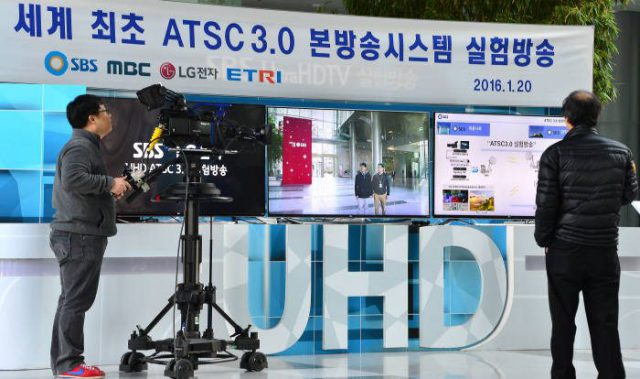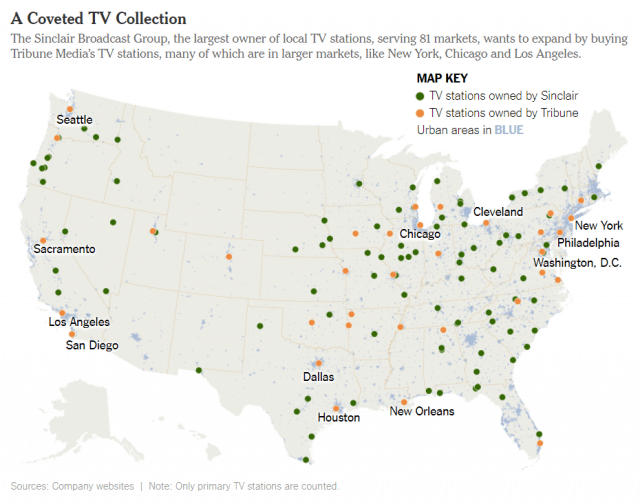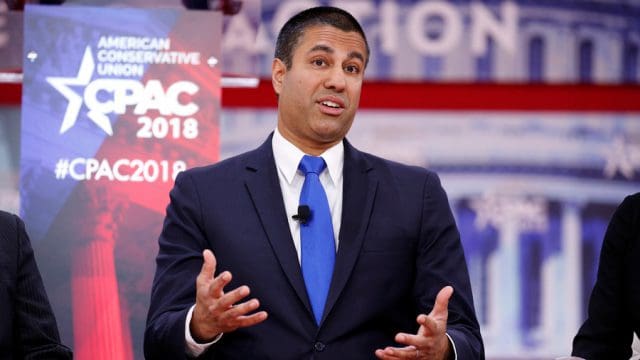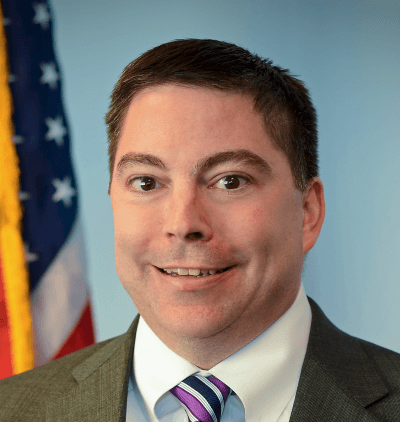 FCC Chairman Ajit Pai is under investigation by the Inspector General of the Federal Communications Commission after being alleged of improperly taking actions to benefit Sinclair Broadcast Group, while one of his colleagues, Commissioner Michael O’Rielly, is the subject of an ethics complaint after allegedly violating the Hatch Act by openly advocating for the re-election of President Donald Trump.
FCC Chairman Ajit Pai is under investigation by the Inspector General of the Federal Communications Commission after being alleged of improperly taking actions to benefit Sinclair Broadcast Group, while one of his colleagues, Commissioner Michael O’Rielly, is the subject of an ethics complaint after allegedly violating the Hatch Act by openly advocating for the re-election of President Donald Trump.
Pai’s actions as head of the FCC under the Trump Administration have been under scrutiny by some members of Congress since last fall. Ranking Member of the House Energy & Commerce Committee, Rep. Frank Pallone, Jr. (D-N.J.) and Ranking Member of the House Committee on Oversight and Government Reform, Elijah Cummings (D-Md.) signed a joint letter addressed to FCC Inspector General James Hunt last November requesting an investigation after they claimed Chairman Pai “has repeatedly refused to adequately respond to Congressional inquiries” on the matter.
Pallone and Cummings noted press reports that Pai specifically timed certain FCC regulatory actions to directly benefit Sinclair, seen as politically friendly to the Trump Administration and Republicans. As evidence, they included multiple examples of suspiciously timed regulatory changes that seemed to coincide with Sinclair’s business deals and the company’s lobbying efforts in Washington:
Sinclair-Bonten License Transfer Application
Chairman Pai rescinded a guidance in February (2017), effectively loosening the scrutiny the FCC’s staff applied to deals that could skirt local TV ownership restrictions by using a sharing agreement (effectively allowing Sinclair to control stations owned by another company). The FCC approved a deal three months later where Sinclair used several of these sharing agreements, potentially to circumvent the rules.

Pai
Reinstatement of the UHF Discount Rule
Press reports indicated in March, 2017, Sinclair was in talks with Tribune Media Company about a potential merger, but analysts remarked the deal would likely require the FCC to reinstate an outdated rule called the “UHF discount.” This rule, left over from the days of analog television and finally rescinded in 2016, did not count UHF television stations above Channel 13 the same as VHF stations (Chs. 2-13) when defining how many TV stations a single company can own. The theory behind the discount was that analog UHF reception was more difficult and, as a result, such stations were less valuable than their lower channel counterparts. But digital television largely erased that distinction because UHF reception has improved, TV stations can be “mapped” by digital tuners to any channel number, and, in some areas, digital VHF stations suffer more reception problems than UHF stations do.
Chairman Pai suddenly announced his plan to reinstate the outdated UHF discount rule the same month Sinclair began talks with Tribune. Sinclair announced its proposed acquisition of Tribune’s TV stations just two weeks after the FCC reinstated the UHF discount. If approved, the transaction would solidify Sinclair as the country’s largest TV group owner with a potential to reach 70% of the country, which is far in excess of the current 39% limit.

LG’s Ultra High Definition (UHD) televisions support ATSC 3.0, and were demonstrated at the 2017 Olympic Games in PyeongChang, South Korea.
Next Gen TV (ATSC 3.0)
Sinclair has been one of the main proponents of the ATSC 3,0 (also known as “Next Gen TV”) transition, and its subsidiary holds patents that reports indicate could provide billions of dollars in licensing fees to Sinclair. Chairman Pai announced during his first full month in office a proposal to allow the TV industry to accelerate a transition to the new standard.
Since that time, the FCC has pushed ATSC 3.0 forward and the new technology has begun to be tested in the United States. Some consumer groups worry the new technology will be costly if consumers cannot afford or find converter boxes for existing televisions, although ATSC 3.0 proponents promise stations will continue to broadcast a Standard Definition version of existing TV stations for at least five years after the transition begins.
New televisions supporting the standard have already gone on sale in South Korea at prices ranging from around $900-$1,500US. The government is subsidizing TV station owners a minimum of $1.75 billion as part of a TV station repack that will precede the introduction of ATSC 3.0. But no subsidies will be given to consumers. Those buying ATSC 3.0 tuners or televisions will do so out of their own pocket if they wish to continue watching over-the-air stations. Sinclair will also get a royalty payment for each new television or tuner sold.
Main Studio Rule
The FCC voted last October to eliminate rules requiring a local broadcast station to maintain a physical presence in the market in which it operates. This means a station could deliver programming to a station’s transmitter from another city, with no local programming or personnel. This move would make Sinclair’s potential merger even more profitable by eliminating many of the costs of maintaining local stations, particularly labor and news-gathering costs.
Broadcast Ownership Rules

Chairman Pai plans to significantly change the existing broadcast media ownership limits. This would clear away virtually all remaining obstacles to Sinclair increasing its reach beyond the Tribune merger proposal and acquire still more television stations. Sinclair has carefully prepared for this eventuality by contractually obligating the new owner(s) of stations Sinclair is required to sell to remain under whatever ownership cap still exists to sell those stations back to Sinclair if and when Sinclair requests it.
According to the two Democrats, “all of these actions — when taken in context with reported meetings between the Trump Administration, Sinclair, and Chairman Pai’s office — have raised serious concerns about whether Pai’s actions comply with the FCC’s mandate to be independent.”
Pai’s critics are also concerned about the increased partisanship of the chairman and another Republican FCC Commissioner Michael O’Rielly. Both turned up at the Conservative Political Action Conference (CPAC) in Maryland last week.
The NRA’s “Charlton Heston Courage Under Fire Award” for Ajit Pai’s Assassination of Net Neutrality Includes a Kentucky Long Gun

Pai at CPAC
When Pai arrived on stage to deliver a short speech, Dan Schneider, executive director of the American Conservative Union, which sponsors CPAC, took the microphone to introduce the FCC chairman.
“Ajit Pai is the most courageous, heroic person that I know,” Schneider said. “He has received countless death threats. His property has been invaded by the George Soros crowd. He has a family, and his family has been abused in different ways. Chairman Pai, thank you for everything you’ve done.”
He then turned the podium over to Carolyn Meadows, second vice president of the National Rifle Association, who surprised Pai with the NRA’s “Charlton Heston Courage Under Fire Award,” a rare honor given only to firebrand conservatives willing to push through their political agenda regardless of criticism or voter backlash. Pai was being recognized for ignoring the comments of tens of millions of supporters of net neutrality and pushing through a complete repeal of the open internet rules, regardless of the possible political consequences.
Previous award winners include controversial former Milwaukee Sheriff David A. Clarke Jr., Undersecretary John Bolton, who once threw a tape dispenser at a female government contractor and chased her down a Moscow hotel hallway, conservative talk show host Rush Limbaugh, and Vice President Mike Pence.
The honor included a “Kentucky hand-made long gun,” said Meadows, who promised to store the gun for Pai at an NRA museum. That prompted a Tweet from the former director of the Office of Government Ethics, Walter Shaub, claiming Pai’s gun award likely violated federal ethics rules.
Anyone care to explain to me why the FCC thinks that the ethics rules allow Ajit Pai to accept the gift of an expensive handmade gun from the NRA, an entity whose interests he can affect (and has affected) by the performance of his official duties? Am I missing something? https://t.co/S6ocyWIV7H
— Walter Shaub (@waltshaub) February 24, 2018
As criticism of the FCC chairman grew, Pai’s office sent letters on Thursday to both the NRA and the American Conservative Union declining the handmade weapon. Pai indirectly blamed the NRA, claiming his staff has asked at the event that the gun not be given to him. But the NRA came up with its own compromise, storing the gun until Pai left office.
“As you know, once my staff became aware of what was happening, they asked backstage that the musket not be presented to me to ensure that this could be first discussed with and vetted by career ethics attorneys in the FCC’s Office of General Counsel,” Pai wrote, an FCC source told Politico. “Therefore, upon their counsel, I must respectfully decline the award. I have also been advised by the FCC’s career ethics attorneys that I would not be able to accept the award upon my departure from government service.”
FCC Commissioner Michael O’Rielly Calls for the Re-Election of President Trump and Violates the Hatch Act

O’Rielly
At the same CPAC event, FCC Commissioner Michael O’Rielly also managed to find himself the subject of controversy in response to a question.
Q. What can the FCC do to stop the constant “ping pong” of issues, like net neutrality, every time the party in power changes in the nation’s capital?
A. “I think what we can do is make sure as conservatives that we elect good people to both the House, Senate and make sure that President Trump gets re-elected,” O’Rielly answered.
Experts claim O’Rielly violated the Hatch Act, a law that prohibits employees in the executive branch of the federal government, except the president, vice-president, and certain designated high-level officials from engaging in certain forms of political activity. Telling the public to re-elect President Trump counts as a violation.
The Office of Special Counsel (OSC) already warned government officials so steer clear of President Trump’s already announced 2020 re-election campaign. In short, the Hatch Act “prohibits federal employees, while on duty or in the workplace, from expressly advocating for or against his reelection in 2020,” the OSC wrote in a guidance memo distributed to all federal agencies.
American Oversight, a group that monitors ethics issues in Washington, filed a formal complaint with the OSC against O’Rielly on Feb. 23:
“American Oversight respectfully requests that the Office of Special Counsel (“OSC”) immediately open an investigation into whether Michael O’Rielly, Commissioner on the Federal Communications Commission (FCC), violated the Hatch Act during an appearance at the Conservative Political Action Conference today, February 23, 2018. We do not believe this presents a hard question.
“Appearing in his capacity as a commissioner of the FCC, Commissioner O’Rielly improperly engaged in partisan political activity by expressly advocating for the re-election of Donald Trump
and exhorting the crowd to “elect good people to the House [and] the Senate.” Specifically, during the panel discussion, Commissioner O’Reilly delivered the following remarks:
“‘I think what we can do is make sure as conservatives that we elect good people to both the House, the Senate, and make sure that President Trump gets re-elected. But there’s another thing you can do. We’re going to have a fight over the Obama internet rules in the next couple months in the U.S. Senate. And that’s going to matter and that vote matters, and so making sure people take the right course on that, really does affect what policies we’re able to keep in place moving forward. So we can certainly use everyone’s help along those lines.’
“These remarks, made in Commissioner O’Rielly’s capacity as a commissioner at the FCC, constitute prohibited partisan political activity under the Hatch Act. As you know, the Hatch Act generally prohibits federal officials from engaging in partisan political activity while on duty. Advocating for the election of a candidate in a partisan election is the classic example of such prohibited activity.”
“The FCC controls our airwaves, the internet, and so many of the things we interact with every single day,” said Austin Evers, the executive director of American Oversight. “It should be independent, it should not be partisan, and bottom line, it should obey the law.”
Another group, Citizens for Responsibility and Ethics in Washington (CREW) is also reviewing the event.
“This certainly raises Hatch Act issues,” spokesman Jordan Libowitz told the Chicago Tribune. “[O’Rielly] is prohibited from taking part in partisan political activity using his official title or position.”
“The Young Turks” explain Ajit Pai’s attack on net neutrality and the award the NRA gave him for killing it. (7:16)


 Subscribe
Subscribe